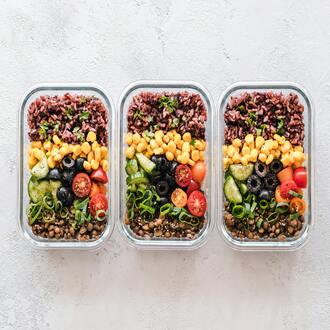Transcription Vegetarianism and ketogenic diet
In the world of nutrition, vegetarianism and the ketogenic diet are presented as two seemingly divergent approaches. While vegetarianism is based on the exclusion of meat and often carbohydrates are a key source of energy, the ketogenic diet focuses on high fat intake and carbohydrate restriction.
In this session, we will unravel the relationship between vegetarianism and the ketogenic diet, and provide guidance on how to synthesize these approaches for optimal, balanced health.
Vegetarianism: A Value-Based and Nutritional Choice
Vegetarianism is a dietary choice that is based on ethical, environmental or health values. By excluding meat and often embracing a higher intake of plant-based foods, vegetarians seek nutrition that reflects their principles. However, the ketogenic diet, with its emphasis on fats and restriction of carbohydrates, may seem incompatible with this choice.
Meeting the challenge of the vegetarian ketogenic diet
At first glance, the combination of a ketogenic diet and vegetarianism may seem challenging. Carbohydrate restriction can limit the food choices allowed in the vegetarian diet, which traditionally relies on grains, legumes and fruits. However, with proper planning, it is possible to create a vegetarian ketogenic diet rich in healthy fats and plant protein.
Protein is an essential component of the ketogenic diet and can come from plant sources. Foods such as tofu, tempeh, seitan, nuts, seeds and low-carbohydrate dairy products can meet protein needs while maintaining ketosis. Choosing quality plant protein sources is critical to achieve adequate nutritional synthesis.
The vegetarian ketogenic diet relies on the consumption of healthy fats. Olive oil, avocados, nuts, seeds and coconut oil are examples of fats that can provide sustained energy and promote ketosis. Choosing healthy fats is essential to ensure proper nutritional balance.
The role of carbohydrates in the vegetarian ketogenic diet
Carbohydrates in the vegetarian ketogenic diet should come primarily from low net carbohydrate sources, such as leafy green vegetables and other low-starch vegetables. Maintaining carbohydrate intake in the ketogenic range is critical to maintaining ketosis and the associated metabolic benefits.
Meal planning in the vegetarian ketogenic diet is crucial to ensure proper nutritional balance. It is important to include a variety of foods rich in plant protein, healthy fats and low net carbs. Working with a dietitian or healthcare professional can provide personalized guidance to achieve optimal nutritional balance.
Supplementation and monitoring of ketosis
In some cases, supplementation may be necessary to ensure adequate nutrient intake in the vegetarian ketogenic diet. Vitamin B12, iron, calcium and omega-3 fatty acids are nutrients that deserve special attention. In addition, regular monitoring of ketone levels can help ensure that ketosis is maintained.
vegeterianism




